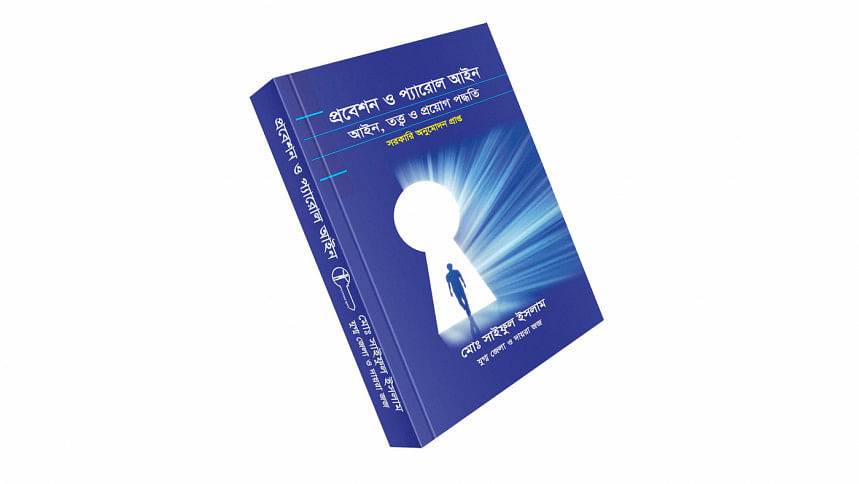On the law of probation and parole

Conditional discharge, probation, parole, furlough etc. are the alternatives to imprisonment for accused. Those can be availed depending on the gravity of the offence and the relevant circumstances as a reflection of reformative theory of punishment. Some of the systems are incorporated in the statutory laws and some are practiced as per the relevant policies. The book Probation O Parole Ain: Ain, Toatto O Proyoug Poddhati (Trans. The Law on Probation and Parole: Law, Theory and Methods of Application), written by Joint District and Session Judge Md. Saiful Islam and published in November 2021, is mostly related with probation and parole laws, policies, relevant case laws and practice scenarios in Bangladesh. The book clarifies common misconceptions regarding probation and depicts the limitations of probation system. The author referred to international mechanisms and several handbooks concerning restorative justice in criminal matters. There is hardly any standard pattern followed in granting parole whether for humanitarian or political ground. Several examples of granting parole are identified by the author, which is really praiseworthy.
Probation cannot be granted as of right, it is rather a discretionary power of the court. There is no common pattern and uniformity in application of the provision for men, women and children. It is necessary to understand the law with the aid of other related laws and the book mentioned above may be a guide for the reader to apply the probation system to different situations in a homogenous manner. The book may even be of use as a textbook which includes the relevant laws of the country related to correction of offenders. Probation system, its elements, history, principles and the legal basis of granting probation are discussed in detail. On the other hand, it may be an aid for the law enforcing agencies because it includes the grounds of granting probation and conditions which are imposed or should be imposed by the judges in the time of granting probation.
There are laws in the country like the Probation of Offenders Ordinance, 1960 and the Bangladesh Probation of Offenders Rules, 1971 but in post-independent era, these laws hardly have any application in Bangladesh. Recently after the directives of the Supreme Court were issued in 2019, judges all across Bangladesh have started to apply the provisions of these laws more often than before.
The innovative aspect of the book is that it includes samples of probation granting order for guilty plea, sample of granting probation for other reasons, sample of conditional discharge order, form of pre-sentence report, different forms of applying parole for the time being/short time, forms of granting parole etc.One positive aspect of the book is that it comprises different process maps of different stages to comprehend the system at a glance.
The book also discusses how the Ministry of Social Welfare assists the court to monitor whether the purpose for which the probation was granted are properly observed or achieved. The author points out the jurisdiction and the process of granting probation by lower judiciary to the apex court and also case references as examples. Most importantly, the book discusses the conditions for probation of children and adults separately. The reader will find the discussion on whether the modern conditions are consistent with the Tokyo Rule, 1990. It also sheds light on whether the terms of the bond can be changed and what will be the consequences if the terms are not met.
In Bangladesh, the laws relating to parole are not compiled yet. As imposing improvised and new conditions at the time of granting probation is debatable and draft Probation Act, 2017 is not passed yet, a book with huge reference and practical implication on probation was the demand of the time and being a judge, the attempt and effort of the author is really commendable.
The reviewer is a Professor of Law, University of Rajshahi.

 For all latest news, follow The Daily Star's Google News channel.
For all latest news, follow The Daily Star's Google News channel. 



Comments